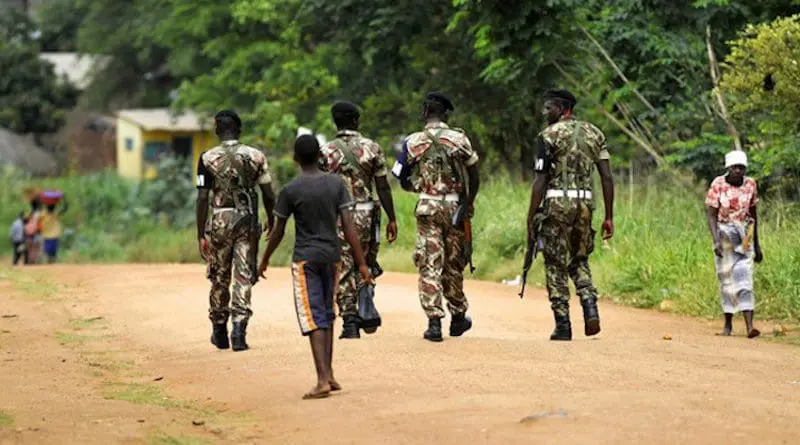Situation In Mozambique Beginning To Stabilize
With about 3,100 African, European and US soldiers deployed to the Cabo Delgado province, the security situation is beginning to stabilize in Mozambique. The Southern African Development Community (SADC) has a Standby Force effectively working, besides the Special Force from Rwanda.
Rwanda was the first foreign army to send troops to Mozambique, deploying 1,000 in July. South Africa has the largest contingent of around 1,500 troops. External countries are enormously helping to stabilize the situation in Mozambique. Mozambique’s former colonizer Portugal and the United States both sent special forces to train local troops.
According to reports, the European Union (EU) concretely sent 1,100 soldiers to the country in September and the troops will be in Mozambique for two years to train rapid intervention units. The EU is supplying the Mozambican army with non-lethal weapons.
“This mission will contribute to operations to defend Mozambique. After finishing the training, we will prepare an operational training plan for the future. The soldiers trained here will be able to go on missions,” Head of Mozambique’s Armed Forces, Joaquim Mangrasse, said in Maputo.
On November 19, the European Council adopted a decision establishing a €40 million assistance measure under the European Peace Facility (EPF) in support of Mozambique. This assistance measure complements an urgent measure amounting to €4 million approved by the Council under the EPF on 30 July 2021 for the most urgently required equipment.
With the measure decided on, the EU will support the Mozambican military units trained by the EU military training mission in Mozambique (EUTM Mozambique), and enable them to conduct security operations in the northern province of Cabo Delgado.
The assistance measure will, in particular, provide adequate, non-lethal equipment to strengthen the capacities of the first Mozambican army companies scheduled to be the first to benefit from the EUTM Mozambique’s training. This includes individual and collective equipment, ground mobility assets, technical tools and a field hospital.
The provision of the assistance will be subject to the compliance of the EUTM-trained units of the Mozambican armed forces with relevant international law, in particular international human rights and international humanitarian law, as well as with relevant legal instruments and best practices based on international and EU rules, standards and policies in the area of the supply of military equipment.
The assistance measure will cover part of the EUTM’s mandate duration. In 2021, partial support packages will be provided to the two companies currently undergoing training by Portugal while, as from 2022, three additional companies will receive support. In total, 11 companies of the Mozambican army and navy will undergo training by the EUTM in several batches and subsequently form a Quick Reaction Force.
The November 19 decision follows the request by Verónica Nataniel Macamo Dlhovo, the Minister of Foreign Affairs of the Republic of Mozambique, in a letter of 27 August 2021 to the High Representative for Foreign Affairs and Security Policy.
Reports said that Islamic-State linked militants have been wreaking havoc in the area since 2017, raiding villages and towns in violence that has claimed at least 3,340 lives and displaced more than 800,000 people. The grave situation attracted international concern when they attacked the key port town of Palma in March, killing dozens as thousands fled into surrounding forest.
The violence forced France’s Total Energies to declare force majeure and evacuate staff from a nearby multi-billion-dollar natural gas project. Mozambique is a member of the Southern Africa Development Community (SADC).
Mozambique is a country located in Southeast Africa bordered by the Indian Ocean to the east, Tanzania to the north, Malawi and Zambia to the northwest, Zimbabwe to the west, and Eswatini (Swaziland) and South Africa to the southwest.

